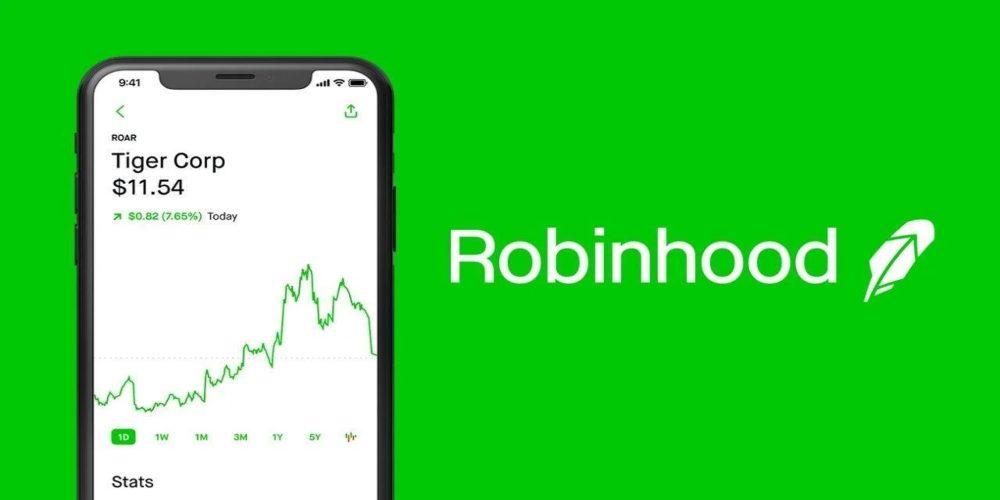News
Robinhood Almost Collapsed During A Gamestop Meme Stock

Robinhood famously froze deals around GameStop and some neighboring hot stocks as the company teetered on the edge of what its platform — and its wallet — could handle. As demand grew, Robinhood suddenly had more on the hook than it had pledged to offset the sudden surge in trades.
For Robinhood, which offers individual investors a relatively hassle-free way to dive into the stock market, the saga was both a massive influx of new users and interest in the brand and an existential threat that nearly destroyed the company.
The committee described Robinhood’s business as “disturbing” and said it preferred aggressive growth without adequate risk management. The report also found that most of the financial companies the committee examined had no plans to prepare for the next risky phase of “extreme” market volatility.
At Robinhood, the company’s executive leadership team has had all hands-on deck brainstorming ways the company can capitalize on the attention and its massive influx of new users, though the team tasked with making sure its deals break even to “keep the lights on” with “things that barely hold together”.
In the end, the company secured an exemption from its collateral requirements, suspended some deals, and averted disaster, but there’s no guarantee that history won’t repeat itself and shake out in other ways. In light of the news, Waters called for “significant” legislative reforms to prevent another Robinhood-style near-collapse.
What Is Robinhood?
Robinhood Markets, Inc. is an American financial services company based in Menlo Park, California that enables commission-free trades in stocks, exchange-traded funds, and cryptocurrencies through a mobile application introduced in March 2015.
How Does It Work?
Robinhood provides 100% commission-free trades in stocks, options, ETFs, and cryptocurrencies, making it attractive to investors who trade frequently. However, nowadays many well-known brokers also offer free trades, so it makes sense to compare other features when choosing a broker.
How Does Robinhood Make Money?
Robinhood makes money in several ways, most notably through a system known as pay-for-order flow. This means that Robinhood routes its users’ orders through a market maker who executes the trades and compensates Robinhood per trade at a fraction of a cent per share.
With the new listings, Robinhood brings its number of listed crypto assets to 19. Aave and Tezos join recent listings such as Cardano’s ADA and Circles USDC, which Robinhood listed in late August and mid-September respectively.
Decentralized lending platform Aave’s native cryptocurrency, AAVE, has gained 7% in the past 24 hours and is up 18% in October. The token remains down about 75% over the past year.
XTZ is a little changed today and is down slightly for October. It has also lost roughly 75% of its value over the past year. An open smart contract platform used to issue new digital assets and create decentralized applications (apps).
Robinhood now offers 19 crypto tokens for trading in its app, among them Bitcoin (BTC), Ether (ETH), Solana’s (SOL), and Polkadot’s (DOT).
Read more – Robinhood App Limits Transactions With Gamestop After A 2,000% Surge

-

 Business3 years ago
Business3 years agoHow to Do Long-Distance Moves with Children
-

 Travel2 years ago
Travel2 years agoQuick Guide: Moving To Santa Rosa?
-

 Real Estate3 years ago
Real Estate3 years agoWhy Dubai Festival City is a Great Neighbourhood for Young Learners
-

 Business3 years ago
Business3 years agoIs Guest Posting a Good Inbound Marketing Strategy?
-

 Business1 year ago
Business1 year agoThe Ultimate Guide To Thriving In Your Printing Franchise
-

 Business1 year ago
Business1 year agoExploring The Benefits And Challenges Of Restaurant Franchising
-

 Tech3 years ago
Tech3 years agoCyber Table That Will Change Your Life
-

 Lifestyle1 year ago
Lifestyle1 year agoDallas’ Hidden Gems: 6 Must-Try Restaurants Off The Beaten Path!









Recent Comments